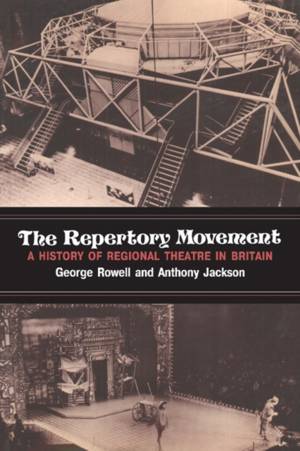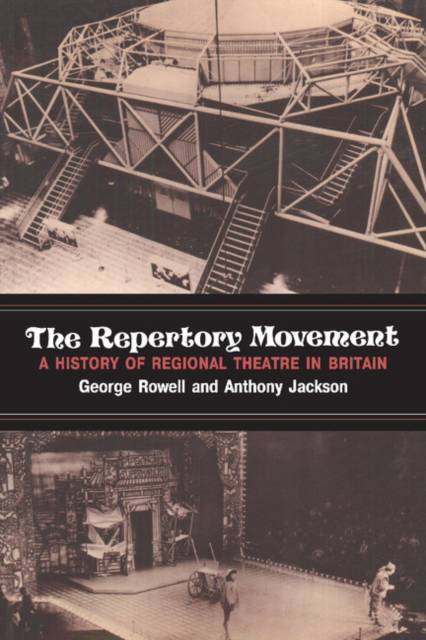
- Retrait gratuit dans votre magasin Club
- 7.000.000 titres dans notre catalogue
- Payer en toute sécurité
- Toujours un magasin près de chez vous
- Retrait gratuit dans votre magasin Club
- 7.000.000 titres dans notre catalogue
- Payer en toute sécurité
- Toujours un magasin près de chez vous
The Repertory Movement
A History of Regional Theatre in Britain
George Rowell
Livre broché | Anglais
66,45 €
+ 132 points
Description
This is an account of the origins, development and current state of the repertory theatre movement in Britain. The movement had its roots in ideas, experiments and traditions stretching back into the nineteenth century, and first found its voice in 1907 with Miss Horniman's company in Manchester. Since then it has played a vital - often a dominant - role in British twentieth-century theatre. As a method of theatre organisation, repertory refers to those theatres based primarily in the regions, housing a resident acting company and seeking to maintain each season a programme of plays catering for the tastes of the whole community. But the theory has never been dogmatic and the movement has evolved from a gamut of complex factors, not least the visions of particular personalities. Major landmarks in the history include the effects of the two World Wars, the advent of substantial state funding for the Arts, the growth of cinema and television and the renewal of theatre's link with the community in the form of such initiatives as Theatre- in-Education. The history concludes with a detailed study of six representative regional theatres: The Nottingham Playhouse; The Citizens' Theatre, Glasgow; The Salisbury Playhouse; The Victoria Theatre, Stoke; The Everyman, Liverpool; and The Royal Exchange, Manchester. Appendixes include a Chronology, sample repertory programmes from the period, audience attendance figures and some comparative statistics about funding. Interspersed through the text are photographs of selected theatre exteriors, auditoria, stages and productions.
Spécifications
Parties prenantes
- Auteur(s) :
- Editeur:
Contenu
- Nombre de pages :
- 244
- Langue:
- Anglais
Caractéristiques
- EAN:
- 9780521319195
- Date de parution :
- 30-11-84
- Format:
- Livre broché
- Format numérique:
- Trade paperback (VS)
- Dimensions :
- 156 mm x 230 mm
- Poids :
- 403 g







